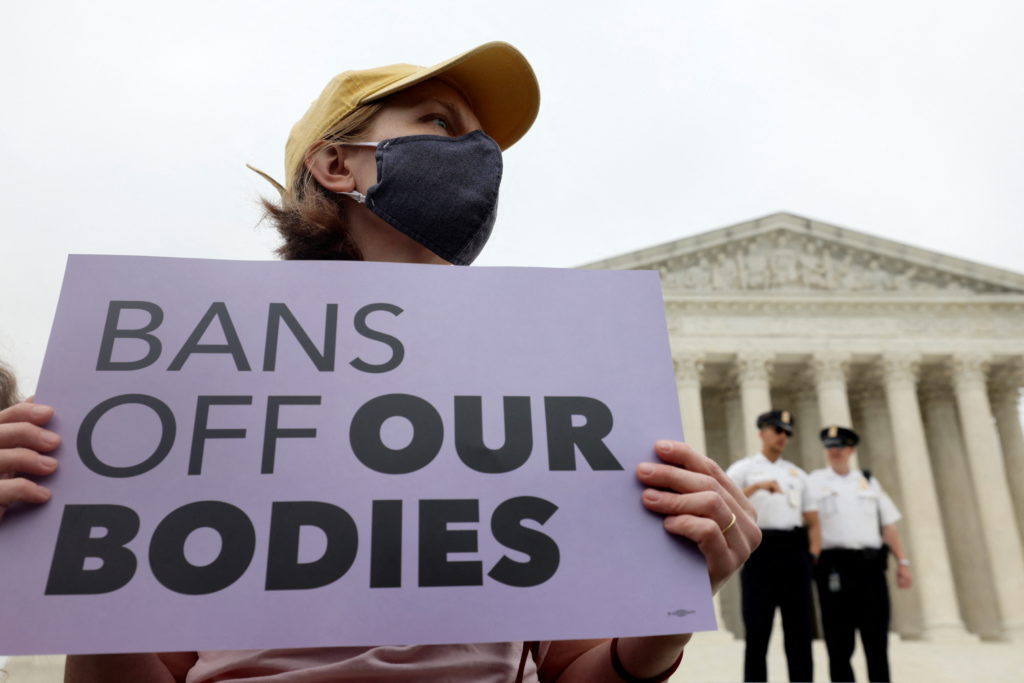The Legal Battle Over Abortion Rights in Iowa
In the grand arena of American politics, contentious battles are waged daily over rights, legislation, and societal norms. One such battle is currently unfolding in Iowa, where a significant piece of abortion legislation is poised to return to the state Legislature.
The Impending Abortion Legislation
This contentious issue arose when a split decision by Iowa’s highest court halted a previous law from going into effect. Now, the bill, which would outlaw abortions in Iowa after six weeks, is once again on the table. The legal journey and its implications for women’s rights, medical practice, and public opinion are complex and multi-faceted.
Governor Kim Reynolds’ Stand
Governor Kim Reynolds, a vocal Republican, has reconvened the General Assembly for a special session with a clear aim: “enacting legislation that addresses abortion and protects unborn lives.” If the proposed legislation gets the green light and survives any legal challenges, Iowa would join Georgia as the second state with a six-week abortion ban.
The 2018 Blocked Legislation
The roots of this legal battle trace back to 2018 when Governor Reynolds signed a law to ban abortion after six weeks. However, a split decision by the state Supreme Court preserved abortion access by upholding a lower court’s block on the ban.
The Split Decision’s Procedural Complexities
The Role of Todd Pettys
To comprehend this multifaceted issue, we turn to the insights of Todd Pettys, a law professor at the University of Iowa. Pettys offers a valuable lens into the procedural complexities that drove much of the split decision.
An Analysis of the Procedural Issues
He explains that the state’s failure to appeal the district court’s ruling—that the 2018 law was unconstitutional—cast doubt among the justices regarding whether they should even reconsider the case.
The Constitutional Standard
Pettys suggests that with the procedural obstacles out of the way, the justices will now have a clear view of the law’s constitutionality, provided the same legislation clears the assembly and the courts again.
Role of Mary Ziegler
Interpretation of the Split Decision
Mary Ziegler, a law professor at the University of California Davis, opines that a second round of legislation and litigation would allow the split court to decide whether the six-week ban fails the undue burden test or aligns with federal law, thereby eliminating a state right to abortion.
The Undue Burden Test
This crucial judicial test, established in Planned Parenthood v. Casey, deems abortion restrictions unconstitutional if they create an undue burden on a woman seeking an abortion before a fetus can survive outside the womb.
Public Opinion in Iowa
The Des Moines Register Poll
Despite the legal battles and legislative efforts, the court of public opinion in Iowa has a different view. A poll by the Des Moines Register reveals that 61% of Iowan adults believe abortion should be legal in all or most cases.
The Medical Practitioners’ Dilemma
The Stance of Emily Boevers
On the medical front, practitioners like Emily Boevers, an obstetrician-gynecologist in rural Iowa, face potential legal dilemmas if the law passes. Boevers questions, “Am I going to be breaking the law by taking care of this patient?”
The Challenges for Rural Healthcare
Her concerns highlight the already existent challenges in rural healthcare, particularly when managing early pregnancy complications like hemorrhaging, and how new legislation could exacerbate these difficulties.
Impact on Women’s Health
Boevers also expresses concern that women’s lives could be put at risk due to the legislation’s lack of clear guidelines.
The American Council of Obstetricians and Gynecologists’ Stand
Echoing this sentiment, The American Council of Obstetricians and Gynecologists filed an amicus brief opposing the 2018 law.
Civil Liberties at Risk
Mark Stringer’s Statement
Critics like Mark Stringer, executive director of the American Civil Liberties Union of Iowa, have also voiced their disappointment in Governor Reynolds’ decision, stating these extreme abortion bans endanger women’s health and threaten physicians’ ability to act in their patients’ best interests.
The Pro-Life Movement
Governor Kim Reynolds’ Commitment
However, Governor Reynolds stands by her pro-life stance, framing the movement as “the most important human rights cause of our time.”
Conclusion
As this legal drama continues to unfold, it’s clear that the implications stretch beyond mere legislative decisions. It’s a clash of values, rights, and societal norms, with lasting consequences for women’s health, civil liberties, and the democratic process itself.








